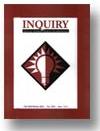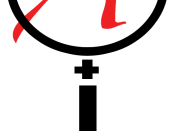Running head: CRITICAL THINKING� � PAGE \* Arabic \* MERGEFORMAT �1� �� CRITICAL THINKING� � PAGE \* Arabic \* MERGEFORMAT �2� ��
Critical Thinking
Karee Davis
MGT/350
August 10, 2011
Instructor: Timothy Smith�
�
Critical Thinking
Defining Critical Thinking
When many people are asked to define critical thinking, most people define it as a specific thought process used for problem solving. In actuality, critical thinking has many definitions. The term has been developing for more than 2500 years and continues to be developed. Its roots date back to the mid-twentieth century. In 1987, the National Council of Excellence in Critical Thinking defined the concept as an intellectually disciplined method of skillfully and actively analyzing, conceptualizing, and evaluating information gathered from experience, observations, communication, reasoning, or reflection, as a way to action and belief. Critical thinking is also based on the universal intellectual value that evolves subject matter elements such as precision, clarity, accuracy, relevance, fairness, depth, good reasons, breadth, sound evidence, and consistency.
Critical Thinking embodies the elements of reasoning such as concepts, problems, purpose, assumptions, frame of reference, conclusions, implications, and reasoning leading to conclusions just to name a few. Critical Thinking is responsive to various subject matters and purposes. Critical thinking also incorporates a group of interwoven modes of thinking, some in which include mathematical, scientific thinking, economic, historical thinking, philosophical, and moral thinking.
Research shows that critical thinking has two components. The first component is a group of information, processing skills, and belief generated. The second component is the habit based on intellectual commitment, of using those skills to guide behavior. These components contrast with the retention of information and acquisition because it involves a specific method in which information is handled. Also the previous components contrast with the mere set of skills that individuals...


